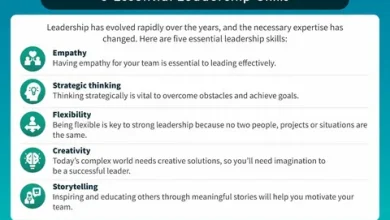Exploring the Role of Influencers in Modern Marketing
Exploring the Role of Influencers in Modern Marketing

In the rapidly evolving landscape of digital marketing, influencers have emerged as powerful players, shaping consumer opinions and driving purchasing decisions. As social media continues to grow, brands recognize the potential of influencers to reach and engage their target audiences. This article delves into the role of influencers in modern marketing, exploring their impact, benefits, challenges, and best practices for brands looking to leverage influencer partnerships effectively.
What Are Influencers?
Influencers are individuals who have established credibility and a following within a specific niche or industry. They create content on various platforms, including Instagram, YouTube, TikTok, and blogs, and possess the ability to influence the behaviors and opinions of their followers. Influencers can range from micro-influencers, who have a smaller but highly engaged audience, to macro and mega-influencers, who boast millions of followers.
Types of Influencers
- Micro-Influencers: Typically have between 1,000 and 100,000 followers. They often have a loyal and engaged community, making their recommendations highly valued.
- Macro-Influencers: Have between 100,000 and 1 million followers. They can reach a larger audience while still maintaining a level of trust with their followers.
- Mega-Influencers: Have over 1 million followers. They often include celebrities and widely recognized figures who can generate significant exposure for brands.
The Impact of Influencers on Modern Marketing
1. Building Trust and Authenticity
Influencers play a crucial role in building trust between brands and consumers. Their followers often see them as relatable figures who share genuine experiences and recommendations.
- Authentic Connections: Influencers share their personal stories and experiences with products, creating a sense of authenticity that resonates with their audience.
- Peer Recommendations: Consumers are more likely to trust recommendations from influencers than traditional advertisements, as they perceive them as peers rather than marketers.
2. Expanding Brand Reach
Through influencer partnerships, brands can reach broader audiences and tap into niche markets.
- Targeted Exposure: Collaborating with influencers allows brands to target specific demographics, ensuring their message reaches the right audience.
- Viral Potential: Engaging content created by influencers has the potential to go viral, exponentially increasing brand visibility.
3. Driving Engagement and Sales
Influencers can significantly drive engagement and sales for brands through their authentic content and established trust with their followers.
- Call-to-Action: Influencers often incorporate calls-to-action in their content, encouraging followers to make purchases or visit brand websites.
- Tracking Performance: Brands can use unique discount codes or affiliate links to track the effectiveness of influencer campaigns, measuring the direct impact on sales.
Benefits of Influencer Marketing
1. Cost-Effectiveness
Compared to traditional advertising methods, influencer marketing can be a more cost-effective option for brands, particularly when working with micro-influencers who may charge lower fees but offer high engagement rates.
2. Increased Brand Awareness
Influencer collaborations can lead to increased brand awareness, as influencers introduce products to their followers who may not have been aware of the brand otherwise.
3. Content Creation
Influencers are skilled content creators, and partnering with them can provide brands with high-quality, engaging content for their marketing efforts.
Challenges of Influencer Marketing
1. Finding the Right Influencers
Identifying influencers who align with a brand’s values and target audience can be challenging.
- Audience Mismatch: Partnering with influencers who do not resonate with the brand’s target audience can lead to ineffective campaigns.
- Reputation Risks: Brands must ensure that the influencers they collaborate with maintain a positive reputation, as any controversies could reflect poorly on the brand.
2. Measuring ROI
Measuring the return on investment (ROI) from influencer marketing can be complex.
- Lack of Standard Metrics: Unlike traditional advertising, influencer marketing lacks standardized metrics for measuring success, making it challenging for brands to assess the impact.
- Attribution Challenges: It can be difficult to attribute sales directly to influencer campaigns, particularly when multiple marketing channels are involved.
Best Practices for Influencer Marketing
1. Define Clear Objectives
Before launching an influencer marketing campaign, brands should define clear objectives and goals. Whether the goal is to increase brand awareness, drive sales, or grow social media followers, having specific targets will guide the campaign.
2. Conduct Thorough Research
Brands should conduct thorough research to identify influencers who align with their values and target audience. Consider the following:
- Engagement Rates: Look beyond follower counts and assess engagement rates to ensure the influencer has an active and involved audience.
- Content Style: Review the influencer’s content style and ensure it aligns with the brand’s messaging and aesthetics.
3. Foster Authentic Relationships
Building authentic relationships with influencers can lead to more successful campaigns.
- Open Communication: Maintain open lines of communication and be receptive to the influencer’s ideas and feedback.
- Long-Term Partnerships: Consider establishing long-term partnerships with influencers to create consistent messaging and deepen trust with their audience.
4. Monitor and Analyze Performance
Brands should continuously monitor and analyze the performance of influencer campaigns to optimize future efforts.
- Track Metrics: Use analytics tools to track key metrics such as engagement rates, website traffic, and sales generated from influencer campaigns.
- Adapt Strategies: Be willing to adapt strategies based on performance data to improve future campaigns.
Conclusion
Influencers play a pivotal role in modern marketing, providing brands with opportunities to connect authentically with consumers, expand their reach, and drive engagement and sales. While challenges such as finding the right influencers and measuring ROI exist, adhering to best practices can help brands navigate this dynamic landscape effectively.
As brands explore influencer marketing, they may encounter practical questions like how to clear search suggestions on Instagram, how to turn off I’m not a robot on Omegle, and hp laptop factory reset without password Windows 10. By addressing these inquiries alongside influencer strategies, businesses can create a seamless experience that enhances their overall marketing efforts.




